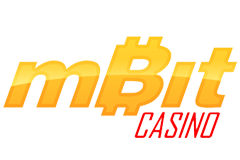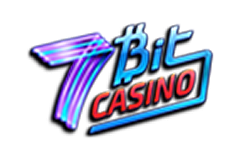Bitcoin wallet FAQ
A: A digital wallet also known as e-wallet is, broadly speaking, a virtual depository for storing financial, payment and identification details of a user. The principles underpinning any bitcoin wallet are the same: a user keeps his/her private key in a wallet because it should be protected from third parties. Contrary to conventional thinking that a bitcoin wallet stores BTC, it actually does not. In fact, it is used to safeguard a private key, which is a unique signature identifying the owner.
A: There are five basic types of bitcoin wallets, each featuring their pros and cons. Depending on a type, they have different performance, security level and convenience. Users normally choose the most appropriate wallet type based on the amount of digital currency owned, ease of access and other aspects. The major kinds of wallets are:
- Online wallets save private keys on remote servers and users can have access to them over the internet. Web wallets allow a person to save and trade bitcoins quickly, from any device that has a web browser. To keep it simple, an online wallet is a complex web platform with advanced layers of protection, which is designed to store BTC holdings. It follows as a logical consequence that a web platform that stores e-wallets can be hacked or otherwise compromised, and this can lead to the loss of all funds reposited there.
- A desktop wallet is a software application that is downloaded, installed and set up on a computer. Most desktop wallets are free while some come at a cost. The basic thing to know about this type of wallet is that user’s private keys never leave the device where the wallet is installed. But the most obvious implication of being stored locally is that the device can be broken into, hacked or exploited by cybercriminals, which can result in your funds’ being stolen.
- For those users in South Africa who utilize bitcoins on a regular basis and in daily activities, a mobile wallet is an ideal solution because it is always at hand. It is actually an app installed and running on a mobile device. It is not recommended to keep large amounts of bitcoin in a mobile wallet because smartphones are vulnerable to cyberattacks, they can be lost or stolen, which will lock out a legitimate user from their bitcoin account and give a third party access to that account.
- Hardware wallets are usually offline peripheral (USB) devices designated for keeping private keys. They are not connected to the internet on a constant basis, that is why they cannot be cracked remotely. No one will know the bitcoin details contained on a hardware wallet, unless shared deliberately or stolen.
- A paper wallet is a piece of paper that contains a bitcoin address (public key) and private key printed on it. This is the simplest yet very effective method of storing bitcoin keys. Paper wallets normally display QR codes that the bitcoin owner should scan to send or receive BTC.
A: Let’s first distinguish between these two types. A hot wallet is the one that maintains constant connection to the internet. Thus all online, desktop and mobile wallets can be considered to be hot. Cold wallets such as paper wallets and hardware devices are offline and they are not connected to the internet.
It is popularly believed that cold wallets are the safest choice as they are in full control of the owner and are protected from online harms. However, a paper wallet has some unique security problems that might arise from the printing process and physical properties of paper as material. Paper is prone to degradation when exposed to water, chemical agents and etc. Given a number of uncontrollable hazards, a paper medium is seen to be unreliable for storing important financial details such as bitcoin address and, more importantly, a private key. For the last few years, bitcoin communities recommend using cold hardware wallets as the safest way of storing any amounts of bitcoins, however big they are.
Q: How to move funds to a bitcoin wallet?
A: In layman’s terms, there are three steps:
- Go to a proper exchange, create an account there and log in
- Exchange fiat money into bitcoins (How to get bitcoins is covered on this website)
- Load bitcoins to your wallet.
The third step requires explanation. To carry out a transaction to the wallet, the user needs to know its Bitcoin address. This is like sending a parcel to a physical location that has a specific address: country, city, ZIP, street, etc. A Bitcoin address – which can be compared to a bank account number – is a public key that the user can share with anybody else without any risk of being scammed. An address consists of an array of alphanumeric characters and it is usually generated by a wallet owned by a user. Knowing the public key for your wallet, you can move bitcoins to it.
A: Exchanges are not the same as wallets. Coin and fiat money exchanges usually act as marketplaces on which traders sell, buy and exchange different currencies. Many mainstream bitcoin exchanges offer a hot online wallet where digital currencies can be stored in an easy and safe way. The most secure and convenient bitcoin exchanges are CoinBase, Luno bitcoin wallet, Freewallet and many others. There are hundreds of exchanges around the world that have a variety of features including online cryptocurrency storage. If a user does not plan to trade frequently or has a significant amount of bitcoins, it is best to transfer funds onto cold storage devices.
A: Whenever a user enters the official website of any wallet, he will find tons of positive epithets calling the wallet to be the best, safest and hack-proof. In reality there are just a few wallets that are widely seen as significant and trustworthy means of keeping digital currency in. Let us not forget about a once best Mt. Gox exchange that used to handle 70% of all BTC transactions in 2013 and got bankrupted in 2014 with around $450 million of user’s funds allegedly stolen. Care must be taken when entrusting funds to a third-party intermediary exchange because accidents can happen even to the best. Depending on the bitcoin wallet type, there is a mouthful of the best, time-tested and crashproof wallets that a South African user can take a closer look at:
- Web wallets: Blockchain, Coinbase, Paxful
- Mobile wallets: Jaxx, Strongcoin, Mobi, Mycelium
- Desktop wallets: Exodus, Bitpay, Electrum
- Hardware wallets: Trezor, Ledger
- Paper wallets: CashAddress, Wallet Generator.
The choice of a medium for storing bitcoins is usually underpinned by several factors: the total amount of bitcoins owned by a user, the frequency of trading bitcoins in daily activities and lots of external factors. A rule of thumb is to avoid keeping big sums in online wallets because they are a tasty morsel for all kinds of “professional” hackers and their online attacks can be devastating. Many online services are still vulnerable to access breaches though they claim to keep almost 100% of their bitcoins in cold storage.
Before opting for a specific wallet, a user should get a better look at it and answer the following questions:
- Does the wallet offer a two-factor authentication?
- Does the wallet have a multisig (multi-signature) option?
- Transparency. A registered user should know who legally owns the company, how they operate and, importantly, have access to an open-source code of the wallet. Some of the most reputable wallets grant rewards to software specialists who will have detected weak spots and code weaknesses in the wallet
- Wallet backup options: Does the wallet support backing up and is the backup fully encrypted?
- User experience (If the wallet is easy to use or overcomplicated for a beginner)
- Feedback on the internet. Navigate across bitcoin communities in South Africa and beyond to find other user’s comments on that wallet.






